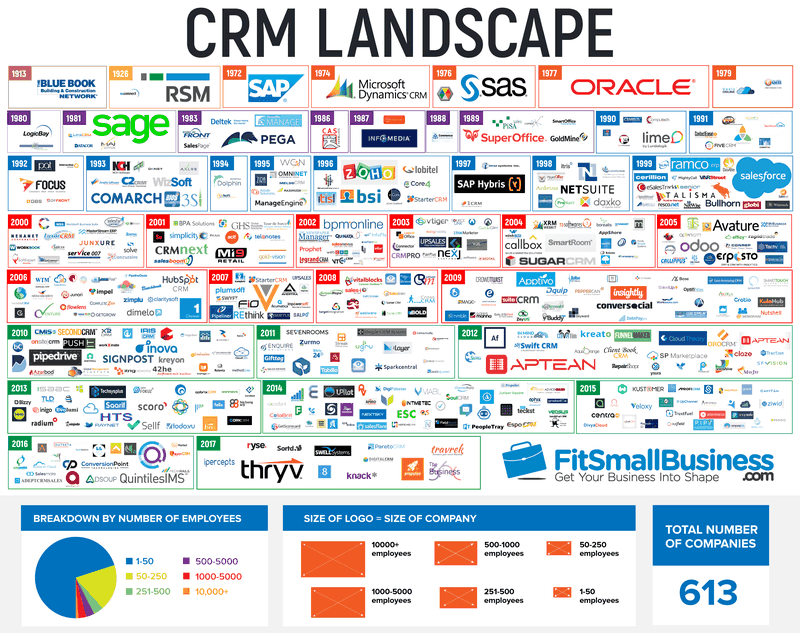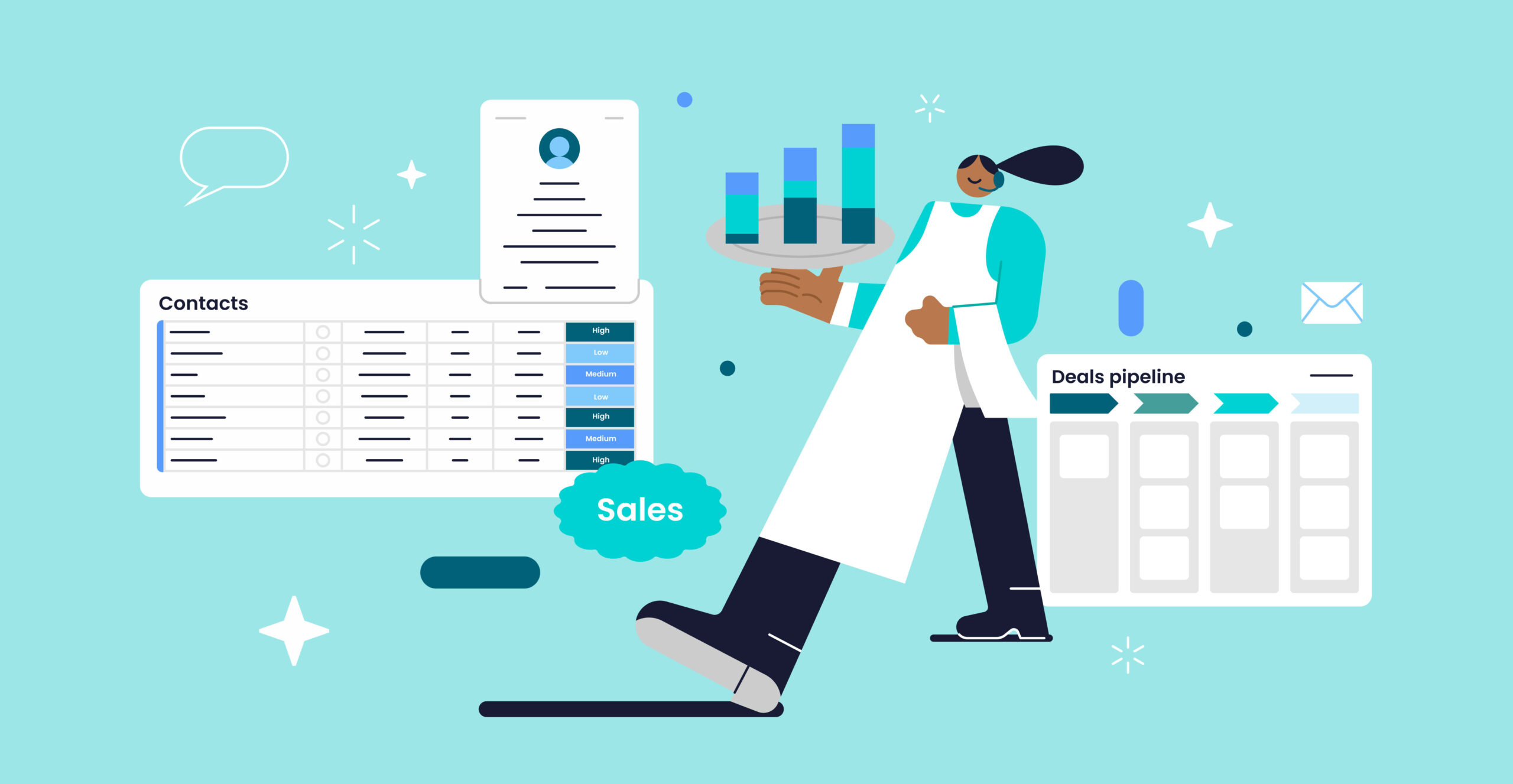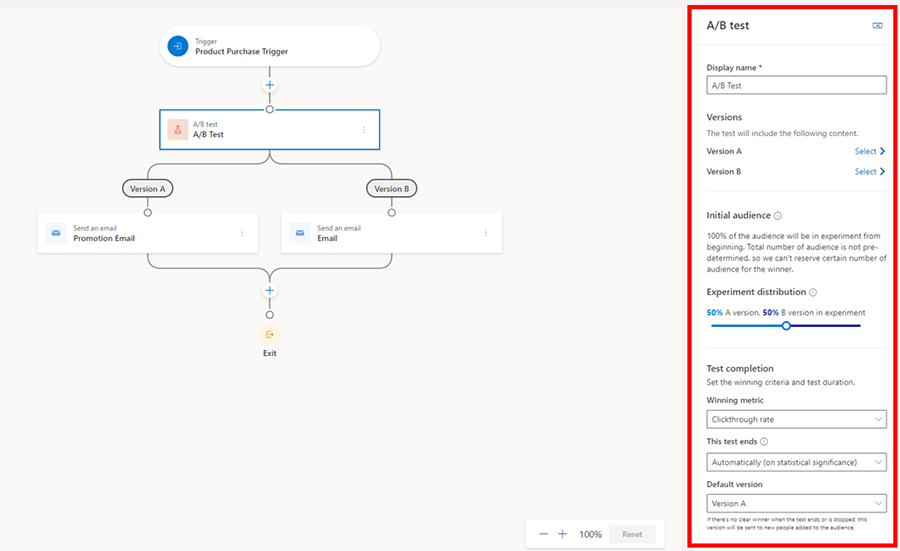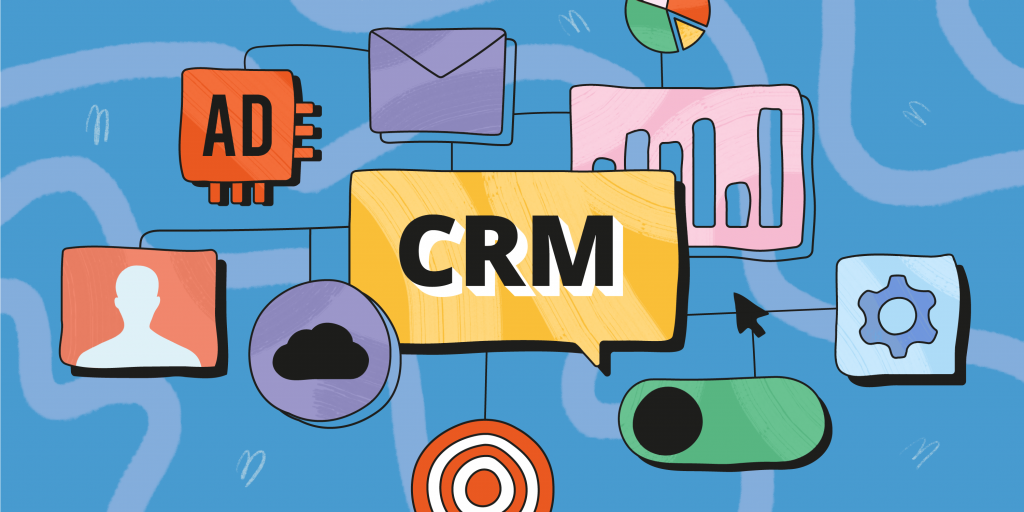Unlocking Growth: Essential CRM Features for Small Businesses

Unlocking Growth: Essential CRM Features for Small Businesses
Starting a small business is an exhilarating journey. It’s filled with the promise of turning a passion into a livelihood, of building something from the ground up. But it’s also a challenging endeavor. You’re constantly juggling multiple roles, from product development and marketing to customer service and sales. In the midst of all this, keeping track of everything can feel like herding cats. That’s where a Customer Relationship Management (CRM) system comes in – it’s your secret weapon for staying organized, building stronger customer relationships, and ultimately, driving growth. This article will delve into the essential CRM features that every small business should consider.
What is a CRM and Why Does Your Small Business Need One?
Let’s start with the basics. CRM stands for Customer Relationship Management. At its core, a CRM is a system that helps you manage all your interactions with current and potential customers. Think of it as a central hub for all your customer data – their contact information, purchase history, communication logs, and more. But it’s much more than just a glorified address book. A good CRM system empowers you to:
- Improve Customer Relationships: By understanding your customers better, you can tailor your interactions to their specific needs and preferences.
- Boost Sales: CRM helps you identify and nurture leads, track sales opportunities, and close deals more effectively.
- Enhance Efficiency: Automate repetitive tasks, streamline workflows, and free up your time to focus on more strategic activities.
- Make Data-Driven Decisions: Gain valuable insights into your customer behavior and sales performance to make informed decisions.
For a small business, where every customer interaction matters, a CRM can be a game-changer. It’s not just a luxury; it’s a necessity for staying competitive in today’s market. It’s about working smarter, not harder, and that’s something every small business owner can appreciate.
Essential CRM Features for Small Businesses
Now, let’s dive into the specific features that are crucial for small businesses. These are the building blocks of a successful CRM strategy.
1. Contact Management
This is the foundation of any CRM system. Contact management allows you to store and organize all your customer information in one central location. Think of it as your digital rolodex, but with superpowers. Key features include:
- Centralized Database: Store all contact details, including names, addresses, phone numbers, email addresses, and social media profiles.
- Segmentation: Group your contacts based on various criteria, such as demographics, purchase history, or lead source. This allows you to send targeted marketing campaigns and personalize your interactions.
- Data Enrichment: Some CRM systems can automatically enrich your contact data by adding information from public sources, such as company size or industry.
- Easy Search and Filtering: Quickly find the information you need using search filters and tags.
Contact management is not just about storing data; it’s about having a clear and organized view of your entire customer base. It’s the first step toward building meaningful relationships.
2. Lead Management
Lead management is all about nurturing potential customers through the sales pipeline. It helps you track leads, qualify them, and convert them into paying customers. Key features include:
- Lead Capture: Capture leads from various sources, such as website forms, landing pages, and social media.
- Lead Scoring: Assign points to leads based on their behavior and engagement to prioritize the most promising prospects.
- Lead Segmentation: Segment leads based on their demographics, interests, and buying stage to tailor your communication.
- Workflow Automation: Automate tasks such as sending follow-up emails, assigning leads to sales reps, and updating lead statuses.
- Sales Pipeline Visualization: Visualize your sales pipeline to track leads through each stage and identify potential bottlenecks.
Lead management is the engine that drives your sales. By effectively managing your leads, you can increase your conversion rates and grow your revenue.
3. Sales Automation
Sales automation streamlines your sales processes, freeing up your sales team to focus on selling. It automates repetitive tasks, such as sending emails, scheduling appointments, and creating follow-up reminders. Key features include:
- Email Automation: Automate email sequences to nurture leads, onboard new customers, and provide ongoing support.
- Task Automation: Automate tasks such as creating tasks, assigning them to team members, and setting deadlines.
- Appointment Scheduling: Integrate with your calendar to schedule appointments and send automated reminders.
- Deal Tracking: Track the progress of sales opportunities through the sales pipeline.
- Reporting and Analytics: Generate reports on sales performance and track key metrics.
Sales automation is about maximizing efficiency and productivity. By automating repetitive tasks, you can free up your sales team to focus on building relationships and closing deals.
4. Marketing Automation
Marketing automation helps you automate your marketing efforts, such as email campaigns, social media posts, and lead nurturing. Key features include:
- Email Marketing: Create and send targeted email campaigns to nurture leads, promote products and services, and engage with customers.
- Social Media Integration: Schedule social media posts, monitor social media activity, and engage with your audience.
- Landing Page Creation: Create landing pages to capture leads and promote specific offers.
- Lead Nurturing: Automate lead nurturing campaigns to guide leads through the sales pipeline.
- Marketing Analytics: Track the performance of your marketing campaigns and measure your ROI.
Marketing automation is about reaching the right audience with the right message at the right time. It helps you generate leads, build brand awareness, and drive sales.
5. Reporting and Analytics
Reporting and analytics provide valuable insights into your customer behavior, sales performance, and marketing effectiveness. Key features include:
- Customizable Dashboards: Create custom dashboards to track key metrics and visualize your data.
- Sales Reports: Generate reports on sales performance, such as revenue, sales pipeline, and conversion rates.
- Marketing Reports: Track the performance of your marketing campaigns, such as email open rates, click-through rates, and conversion rates.
- Customer Segmentation: Analyze customer data to identify patterns and trends.
- Predictive Analytics: Use data to forecast future sales and identify potential opportunities.
Reporting and analytics are essential for making data-driven decisions. They provide you with the information you need to improve your sales, marketing, and customer service efforts.
6. Customer Service and Support
Providing excellent customer service is crucial for building customer loyalty and driving repeat business. CRM systems can streamline your customer service operations. Key features include:
- Ticket Management: Track and manage customer support requests.
- Knowledge Base: Create a knowledge base of frequently asked questions and answers.
- Live Chat: Provide real-time support to customers through live chat.
- Self-Service Portals: Allow customers to access information and resolve issues on their own.
- Customer Feedback: Collect customer feedback through surveys and other channels.
Customer service and support features help you provide timely and effective support to your customers, leading to increased customer satisfaction and loyalty.
7. Integration with Other Tools
Your CRM should integrate with other tools that you use to run your business. This allows you to streamline your workflows and avoid manual data entry. Key integrations include:
- Email Marketing Platforms: Integrate with email marketing platforms to automate your email campaigns.
- Accounting Software: Integrate with accounting software to track sales and expenses.
- E-commerce Platforms: Integrate with e-commerce platforms to manage customer orders and track sales.
- Social Media Platforms: Integrate with social media platforms to manage your social media presence and engage with your audience.
- Communication Tools: Integrate with communication tools like Slack or Microsoft Teams to facilitate team collaboration.
Integration is about creating a seamless workflow and avoiding data silos. It allows you to get a holistic view of your customer and business operations.
Choosing the Right CRM for Your Small Business
With so many CRM systems on the market, choosing the right one for your small business can feel overwhelming. Here are some factors to consider:
- Your Business Needs: Identify your specific business needs and the features that are most important to you.
- Budget: Determine your budget and look for CRM systems that fit your price range.
- Ease of Use: Choose a CRM system that is easy to use and requires minimal training.
- Scalability: Choose a CRM system that can scale with your business as it grows.
- Integration Capabilities: Consider the integration capabilities of the CRM system and whether it integrates with the other tools you use.
- Customer Support: Make sure the CRM provider offers good customer support.
- Reviews and Ratings: Read reviews and ratings from other small businesses to get an idea of the CRM system’s strengths and weaknesses.
Take your time to research different CRM systems and compare their features, pricing, and reviews. Consider a free trial to test out the system before committing to a paid subscription. Finding the right CRM is an investment in your business’s future.
Top CRM Systems for Small Businesses
Here are a few popular CRM systems that are well-suited for small businesses, along with a brief overview:
- HubSpot CRM: HubSpot offers a free CRM that is ideal for small businesses. It includes contact management, lead management, and sales automation features. It’s known for its user-friendliness and comprehensive marketing features.
- Zoho CRM: Zoho CRM is a robust and affordable CRM system that offers a wide range of features, including sales automation, marketing automation, and customer service tools. It’s a good choice for businesses that need a comprehensive solution.
- Freshsales: Freshsales is a sales-focused CRM that is known for its ease of use and intuitive interface. It offers features such as lead scoring, sales automation, and reporting.
- Pipedrive: Pipedrive is a sales-focused CRM that is designed to help salespeople close deals. It offers features such as sales pipeline management, deal tracking, and reporting. It’s a great option for businesses that want a CRM that focuses on sales.
- Salesforce Essentials: Salesforce Essentials is a scaled-down version of Salesforce, designed for small businesses. It offers contact management, lead management, and sales automation features.
This is just a starting point. The best CRM for your business will depend on your specific needs and preferences. Do your research and find the system that’s the perfect fit.
Implementing Your CRM: Best Practices
Once you’ve chosen a CRM, the real work begins: implementation. Successful implementation is key to realizing the full potential of your CRM. Here are some best practices to follow:
- Define Your Goals: Before you start, clearly define your goals for using the CRM. What do you want to achieve? (e.g., increase sales, improve customer satisfaction, streamline processes).
- Clean Your Data: Ensure your existing data is clean, accurate, and up-to-date. This is crucial for getting accurate insights and avoiding problems down the road.
- Customize Your CRM: Tailor the CRM to your specific business needs. Configure the fields, workflows, and reports to match your processes.
- Train Your Team: Provide comprehensive training to your team on how to use the CRM. Make sure everyone understands how to enter data, use the features, and access the information they need.
- Establish a Clear Process: Define clear processes for using the CRM, such as how to enter leads, manage opportunities, and track customer interactions.
- Monitor and Evaluate: Regularly monitor the CRM’s performance and evaluate whether it’s meeting your goals. Make adjustments as needed.
- Integrate Gradually: Don’t try to implement everything at once. Start with the core features and gradually add more features as your team becomes comfortable.
- Get Buy-In: Ensure that everyone on your team understands the benefits of the CRM and is committed to using it.
Proper implementation is crucial for maximizing the value of your CRM. Following these best practices will help you set your business up for success.
The Future of CRM for Small Businesses
The world of CRM is constantly evolving, with new features and technologies emerging all the time. Here are some trends to watch for:
- Artificial Intelligence (AI): AI is being used to automate tasks, personalize customer interactions, and provide more accurate insights.
- Mobile CRM: Mobile CRM allows you to access your CRM data and manage your customer relationships on the go.
- Social CRM: Social CRM integrates with social media platforms to help you manage your social media presence and engage with your audience.
- Personalized Customer Experiences: CRM systems are being used to create more personalized customer experiences.
- Focus on Customer Experience: The focus is shifting from simply managing customer data to providing exceptional customer experiences.
Staying up-to-date with the latest trends in CRM can help you stay ahead of the competition and provide the best possible experience for your customers. Embrace the future of CRM to ensure your small business continues to thrive.
Conclusion: CRM – Your Partner in Growth
In the dynamic landscape of small business, a robust CRM system is no longer a luxury; it’s a strategic imperative. By implementing the essential CRM features discussed in this article, you can transform your customer relationships, streamline your sales processes, and drive sustainable growth. From contact management and lead nurturing to sales automation and customer service, a well-chosen CRM becomes your ally, helping you to stay organized, informed, and focused on what matters most: your customers. Take the time to explore the options, choose the right system for your needs, and embrace the power of CRM. Your small business will be well-positioned to thrive in a competitive market and build lasting relationships with your customers. It is more than just a piece of software; it’s an investment in the future of your business.





